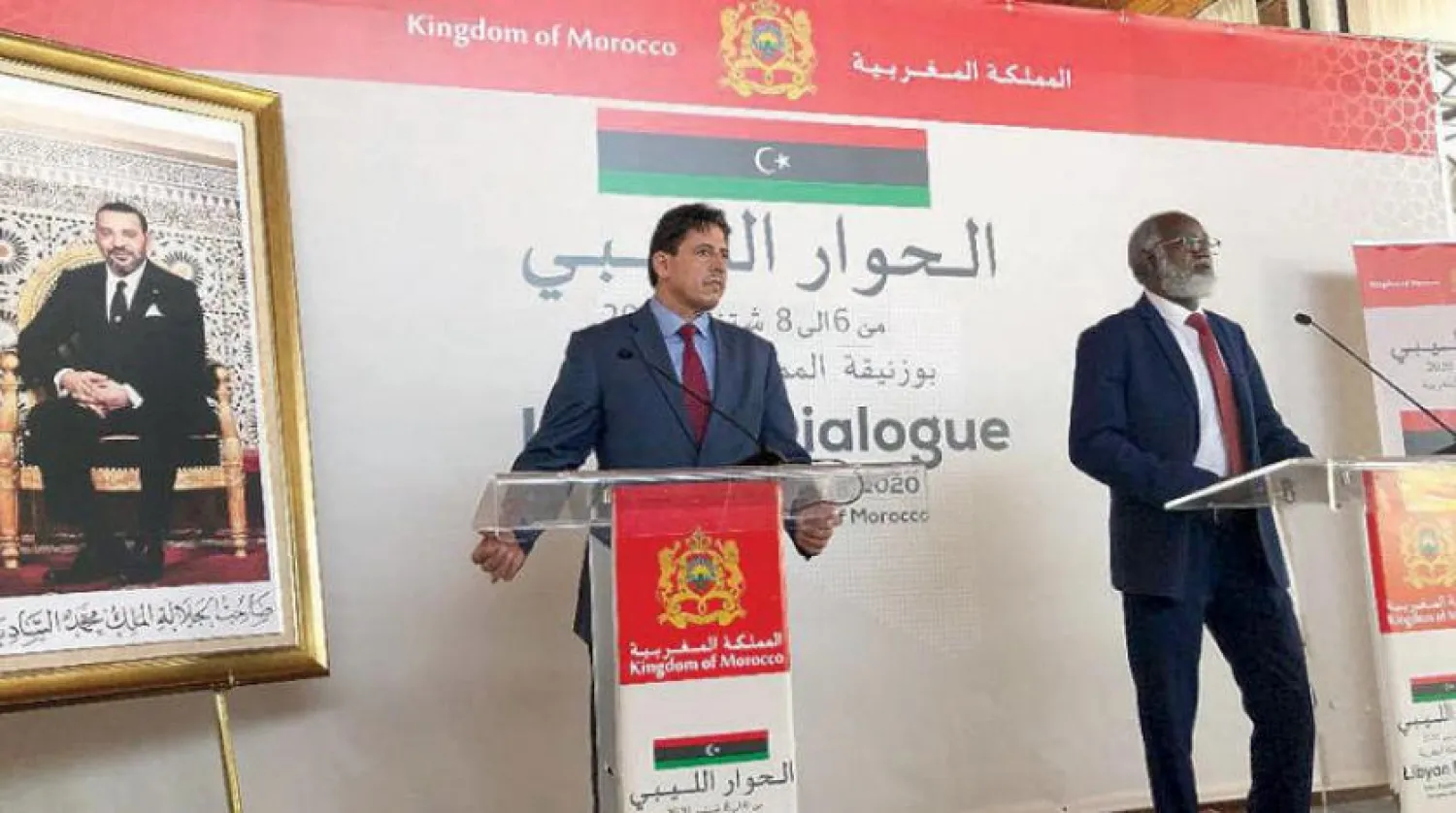The Libyan dialogue hosted by Morocco will stop on Wednesday and resume on Thursday, according to a source in Morocco’s foreign ministry.
The two-day scheduled talks between Libya’s High Council of State (HCS) and east-based Tobruk parliament had kicked off on Sunday in Bouznika, south of Rabat. Yet, talks continued for the third day in a row on Tuesday, signaling a breakthrough.
In a joint press conference on Tuesday, HCS delegation member Mohamed Khalifa Najm and Tobruk MP Youssef al-Akouri said the political dialogue “is proceeding positively and constructively.”
“Everyone hopes to achieve good and actual outcomes that would pave the way for a comprehensive political settlement.”
They announced reaching significant understandings on setting clear standards aimed at eliminating corruption and ending the state of political division in the country, without giving further details.
Tuesday’s meeting was held in light of extreme secrecy and a scarcity of news and was followed by the joint conference.
But sources close to the matter have revealed differences on the distribution of sovereign posts and the headquarters of the regulatory and government agencies.
Pro-Fayez al-Sarraj HCS members refuse to move the headquarters of the Central Bank outside Tripoli, the sources noted.
Meanwhile, local media quoted participants in the dialogue as affirming that talks have concluded with choosing Tripoli as the headquarters of the Audit Bureau, Benghazi (east) as the headquarters of the Administrative Control Authority, and Sabha (south) as the headquarters of the National Anti-Corruption Commission.
Tobruk MPs demanded that Benghazi be the headquarters of the Central Bank of Libya, while Tripoli be the headquarters of the National Oil Corporation (NOC), participants were quoted as saying.
However, they stressed that the HCS delegation insisted on keeping the bank in Tripoli and appointing its president.
The United Nations on Monday welcomed the “constructive role” of Morocco, which has contributed since the beginning of the Libyan crisis to efforts aimed at achieving a peaceful resolution to the conflict in Libya.
Stephen Dujarric, the spokesman for the United Nations Chief, said the Libyan Political Agreement signed in the Moroccan city of Skhirat in 2015 is a “testament to Morocco’s resolute engagement in finding a solution to the Libyan crisis alongside the United Nations.”
“UN Secretary-General Antonio Guterres supports all initiatives that seek to boost peace efforts led by the Berlin Conference to end the conflict in Libya,” he noted.
The US Embassy echoed that general sentiment saying it “shares the UN’s confidence that Libyan talks in Morocco will have a positive impact on UN-facilitated and Libyan-led political dialogue.”
European Union High Representative for Foreign Affairs and Security Policy Josep Borrell also hailed the Moroccan initiative to host dialogue between Libyan warring parties.
“We welcome the Moroccan initiative bringing together members of Libyan High State Council and House of Representatives in Bouznika,” he tweeted.
He said the initiative is a “timely contribution to ongoing UN-led efforts,” pointing out that “the commitment by both delegations to a peaceful solution to the conflict in Libya is encouraging”.









